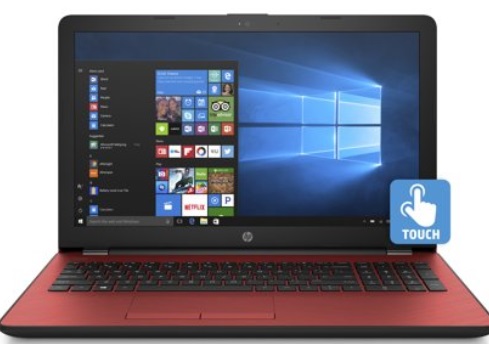Limpert Tech "SullyCast" on ALT 105.7 and iHeartRadio 8/30/19 - Tips for Buying a Budget Laptop
 Sunday, September 1, 2019 at 11:17AM
Sunday, September 1, 2019 at 11:17AM If money is a concern when looking to purchase a new laptop, consider these factors in this order of importance:
We are talking maybe $250-500.
Have a listen:
Full-HD (1920 x 1080) Screen: Most budget laptops are saddled with low-res, 1366 x 768 displays that allow you to fit a lot of text on the screen at once. If you can find a laptop with a screen that has a 1920 x 1080 resolution, you'll be able to see more of your favorite web pages, emails, social media feeds and documents, without scrolling. You'll also get much sharper images and videos.
SSD or eMMC Memory: Most sub-$500 laptops use mechanical hard drives, but if you can get one with a solid-state drive or eMMC storage, another form of solid-state memory, you'll speed up your boot and application open times.
Good build quality: If you see a laptop with a soft-touch finish or real aluminum on any of its surfaces ― especially the deck and lid ―that's a sign of good design. However, in this price range, you'll likely have to settle for plastic.
Pick the right CPU: A Core i3 processor is pretty good for this price range. Intel Pentium and Celeron CPUs are serviceable, but not particularly speedy. A Chromebook generally requires less processing power than a Windows machine.
Optical Media: If you need to use CDs or DVDs, we've even found a couple of laptops with DVD drives that won't break the bank.
Your buying decision may come down to whether you need a full-fledged PC, or would prefer the simplicity of a Chromebook.
You'll want a Windows 10-based machine if there are applications you depend upon, such as Adobe or Microsoft's suites of apps. Yes, Chrome OS machines can run the Android versions of those apps with Google Play emulation, but those apps are often incomplete, and give you a bare minimum when it comes to features.
Chromebooks will be best, though, if you live inside the Chrome browser, and prefer a system that takes care of itself. With a Chromebook, you'll never need antivirus software, and system updates are automatically performed. Chromebooks are also more web-dependent, as offline modes are still not as widely available.
1
 Radio segment,
Radio segment,  budget,
budget,  laptops,
laptops,  tips in
tips in  gadgets,
gadgets,  radio,
radio,  tech segment
tech segment 